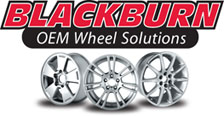Choosing the right wheel for your vehicle is an extremely important decision that could affect you financially, both in gas mileage and the longevity of your wheels. When it comes down to it, there are two types of wheels to choose from: aluminum alloy wheels and steel wheels (or alloy…
Storing Steel Rims in the Off-Season

Anyone that lives in an area that experiences its fair share of winter weather knows the importance of winter wheels and tires. But once spring arrives and the snow melts, you might be wondering about the best way to store your winter wheels. Depending on your circumstances, you may need to store your wheels, tires, or both for the off-season. For those with limited storage space, such as apartment renters, this can be quite the hassle.
If you have a dedicated set of wheels for your winter tires, you may have a set of mounted tires on rims that you need stored. If you only have one set of wheels, you may need to store only the tires. Many people have a set of OEM alloy wheels for summer and OEM winter wheels for, you guessed it, winter.
If your winter tires ran out of tread towards the end of the season, you may just need storage for the rims until you purchase new winter tires in the fall. Whatever your scenario is, follow these tips to lessen the headaches associated with storing steel rims and / or tires in the off-season.
Ask your local tire dealer or mechanics if they know of any local companies that specialize in storage solutions for cars, wheels and the like. More and more, these types of companies are popping up, especially those offering to store tires and wheels for apartment owners in the off season.
No matter whether you plan on storing your spare set of wheels in your garage, your basement, in a storage facility, at a friends house – you need to make sure your wheels are protected from the elements wherever you choose to store them. Ideally, you’ll want to create an environment that will not foster rust buildup on your wheels. Of course, whether your winter wheels are on your car or stored for the summer, rust is the biggest enemy you must face to make your wheels last as long as possible.
A quick science refresher on iron oxide, aka rust, should help shed some light on the situation for us.
Rust occurs when iron is exposed to oxygen AND moisture for too long a period of time. If you’re wondering how this applies to you, since afterall, you’re not driving iron wheels (thankfully) around town, your steel wheels contain iron! On an atomic level, oxygen actually combines with the metal to make an entirely new compound called “rust” or iron oxide. Unfortunately, rust isn’t just an eyesore, but actually weakens the bonds of the metal, resulting in dents and cracks, and eventually your wheel will break.
Moisture
Even tiny amounts of water can create too much humidity, especially if you are planning on sealing your wheels up in some sort of garbage bag or other plastic bag. To avoid this, make sure to throughly dry your wheels before storing. Tips to facilitate a dry environment include throwing desiccant packets to help absorb any remaining moisture.
Air
Only a problem if moisture is present, you can still attempt to remove the majority of the air using some kind of vacuum sealer, or simply manually forcing all the air out of the bag.
Time
Obviously, you can’t choose how long summer lasts, but what you can do is periodically check up on your wheels to make sure that there is no moisture present that could lead to rust.
You don’t have to seal your wheels up in bags to create a controlled environment for their storage, but it is sometimes the simplest option. A basement or garage can make a great storage environment for your OEM steel wheels so long as you are controlling the climate with a dehumidifier, etc.
Storing tires is a different story altogether, as rubber tends to deteriorate over time much more quickly than steel or alloy. We’ll touch on the best way to store tires in a future article, so stay tuned!







